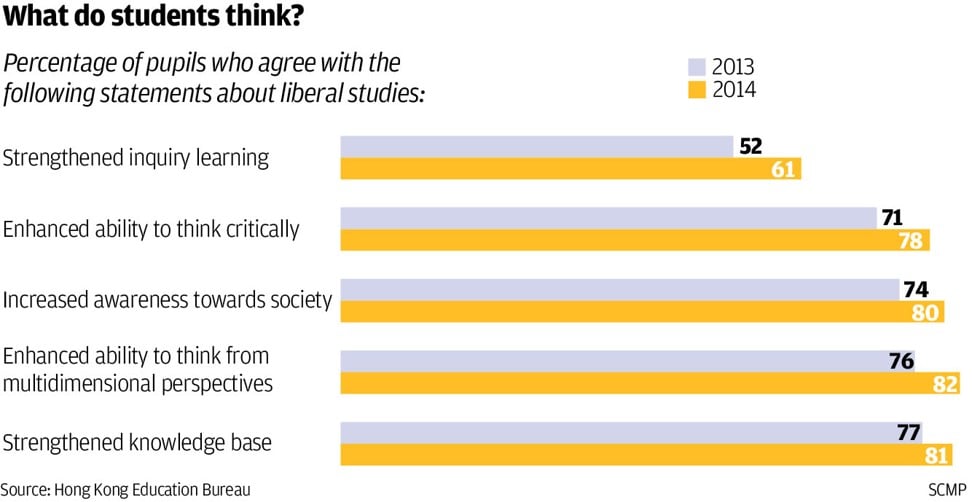
Liberal studies debate traps Hong Kong students in political combat zone
Compulsory for Hongkongers looking to enter university, the course has been caught in the cross hairs of an ongoing debate on what youngsters should learn in school
To third-year journalism student Degas Chan Pui-chung, liberal studies was “the most useful and diverse” subject he took in secondary school.
The coursework and classroom discussions covered the make-up of Hong Kong society, the city’s system of governance and the rule of law, such as the option for residents to request judicial reviews of court decisions.
“It was helpful in understanding society and things around me,” the 22-year-old said, adding the subject provided him with a good foundation for his studies at Hang Seng Management College.
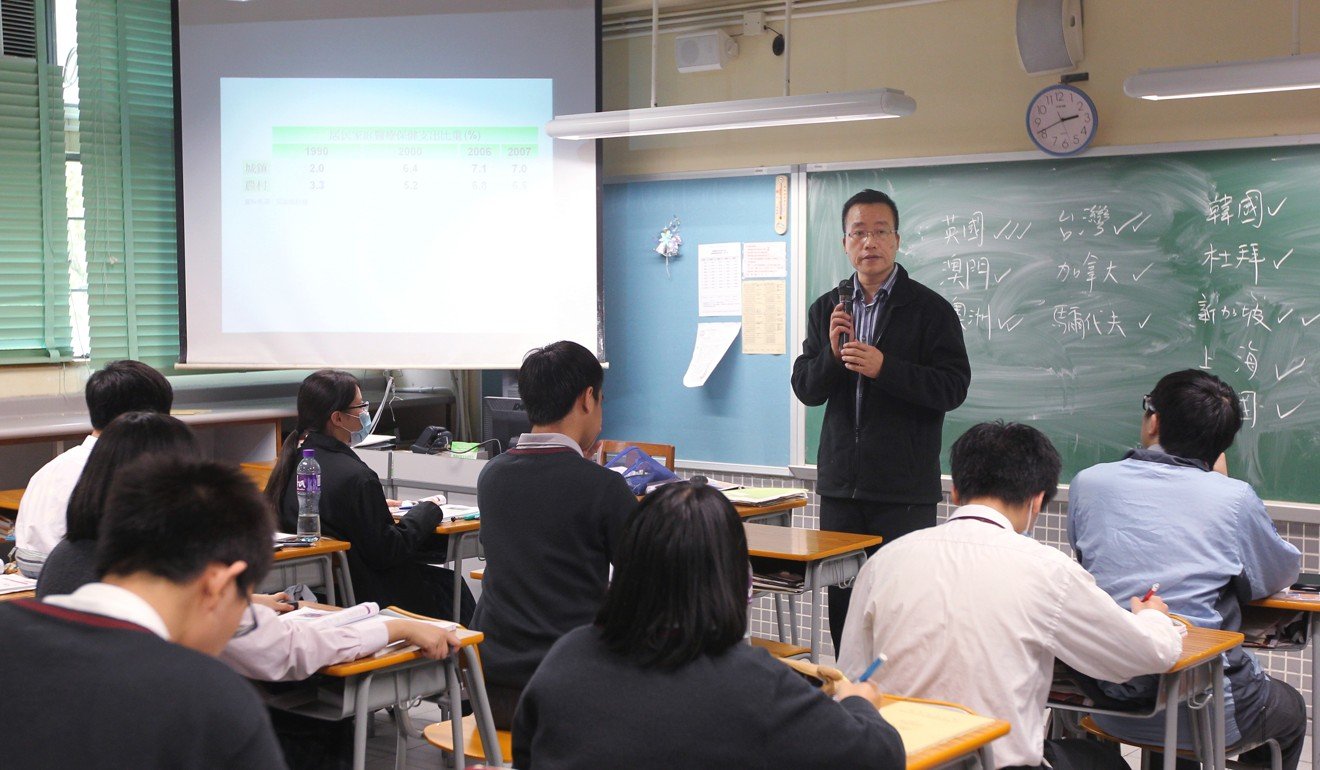
Like Chan, youngsters and educators alike have given positive feedback about liberal studies – a compulsory subject since 2009 to expose senior secondary school students to issues of significance at home and globally, and foster critical thinking skills.
An Education Bureau survey in 2014 found 82 per cent of Secondary Six graduates agreed liberal studies enhanced their ability to think from multidimensional perspectives, while 80 per cent said the subject increased their awareness of society.
So when reports emerged earlier this month that the government was reviewing the place of liberal studies in the education system and that it could possibly become an elective, pass-fail course, there was a spirited defence from students, educators and members of the public to keep things as they are.
Secretary for Education Kevin Yeung Yun-hung clarified that a task force was studying the course curriculum as part of a broader review of the education system and would only make recommendations next year.
The exchange highlighted a trend in Hong Kong of politics creeping into education – with universities becoming the site of contentious protests, Beijing and its supporters have blamed the school system for cultivating anti-government sentiment.
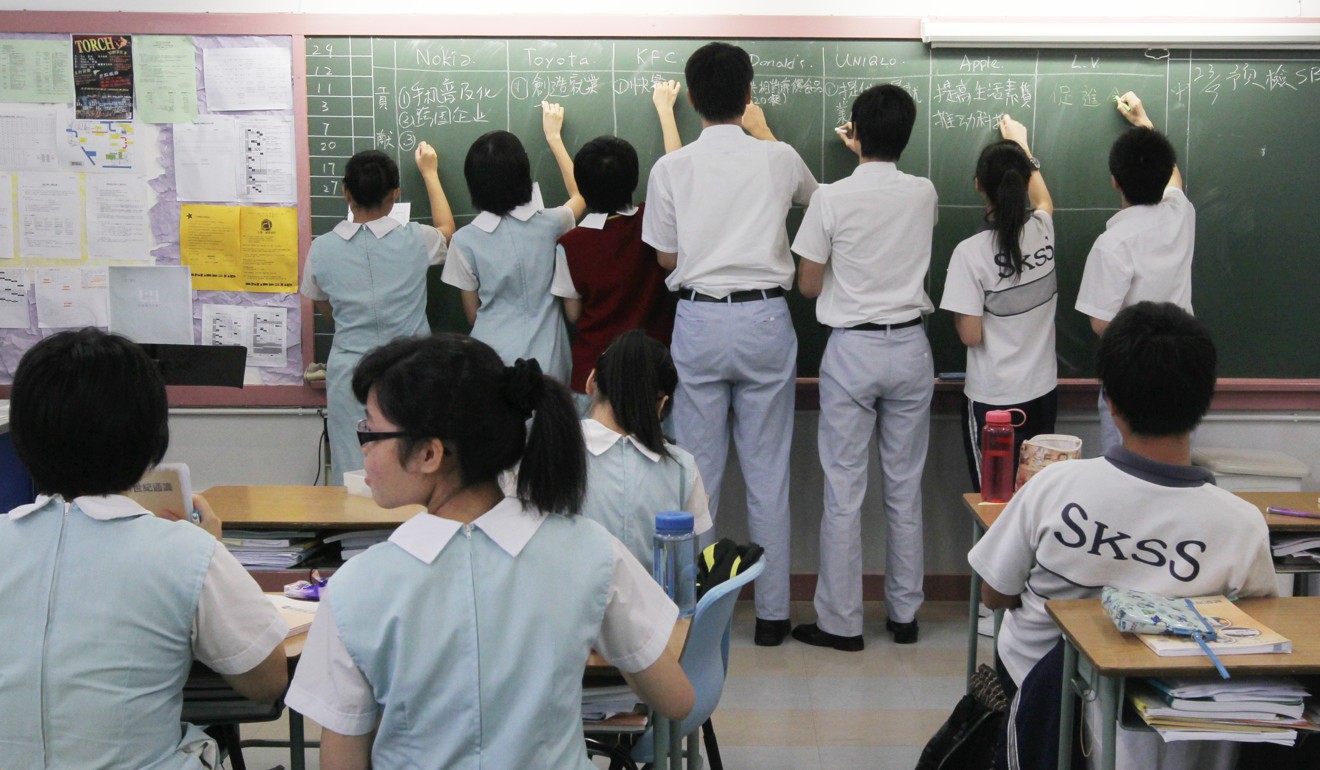
Last year, without mentioning any subjects, China’s education chief Chen Baosheng said the rise of pro-independence sentiments in Hong Kong was “linked directly” to the education system.
Since taking office last July, Lam has made clear that instilling patriotism in young Hongkongers is a priority.
Critical thinking or bias? Row over liberal studies rumbles on
National education is now imparted in schools via different subjects and activities, and in a controversial move, Chinese history will become a stand-alone compulsory subject at junior secondary levels in the next academic year, leading detractors to claim it is an attempt at “brainwashing”.
Liberal studies has been caught in the cross hairs of the ongoing debate on what young Hongkongers should be taught in school. Supporters of the course – including pan-democrat lawmakers – fear the subject could eventually be removed from the curriculum.
How did a subject to educate youngsters on current affairs and give them a space to discuss ideas become so politically charged?
Who’s afraid of liberal studies?
Liberal studies was first introduced in 1992 to counter the rote learning approach widespread in the city then.
It became a compulsory exam subject after a raft of reforms to the education structure that began when Hong Kong returned from British to Chinese rule in 1997.
Talk of liberal studies changes ‘groundless’ speculation, Carrie Lam says
In the three years preceding the exam, teachers would cover six modules, namely: personal development and interpersonal relationships; Hong Kong today; modern China; globalisation; public health; and energy, technology and the environment.
Students would have to do an independent inquiry study, but their exam papers would count for 80 per cent of their final grade.
Kwan Chin-ki, president of the Liberal Studies Teachers’ Association, explained that unlike other subjects, there were no textbooks designated for use by the Education Bureau. Books on the subject available for sale are reference texts.
At Tung Chung Catholic School, where Kwan is the liberal studies subject head, 90 per cent of teaching materials are developed by teachers, based on the bureau’s curriculum guide, which covers learning outcomes and teaching strategies.
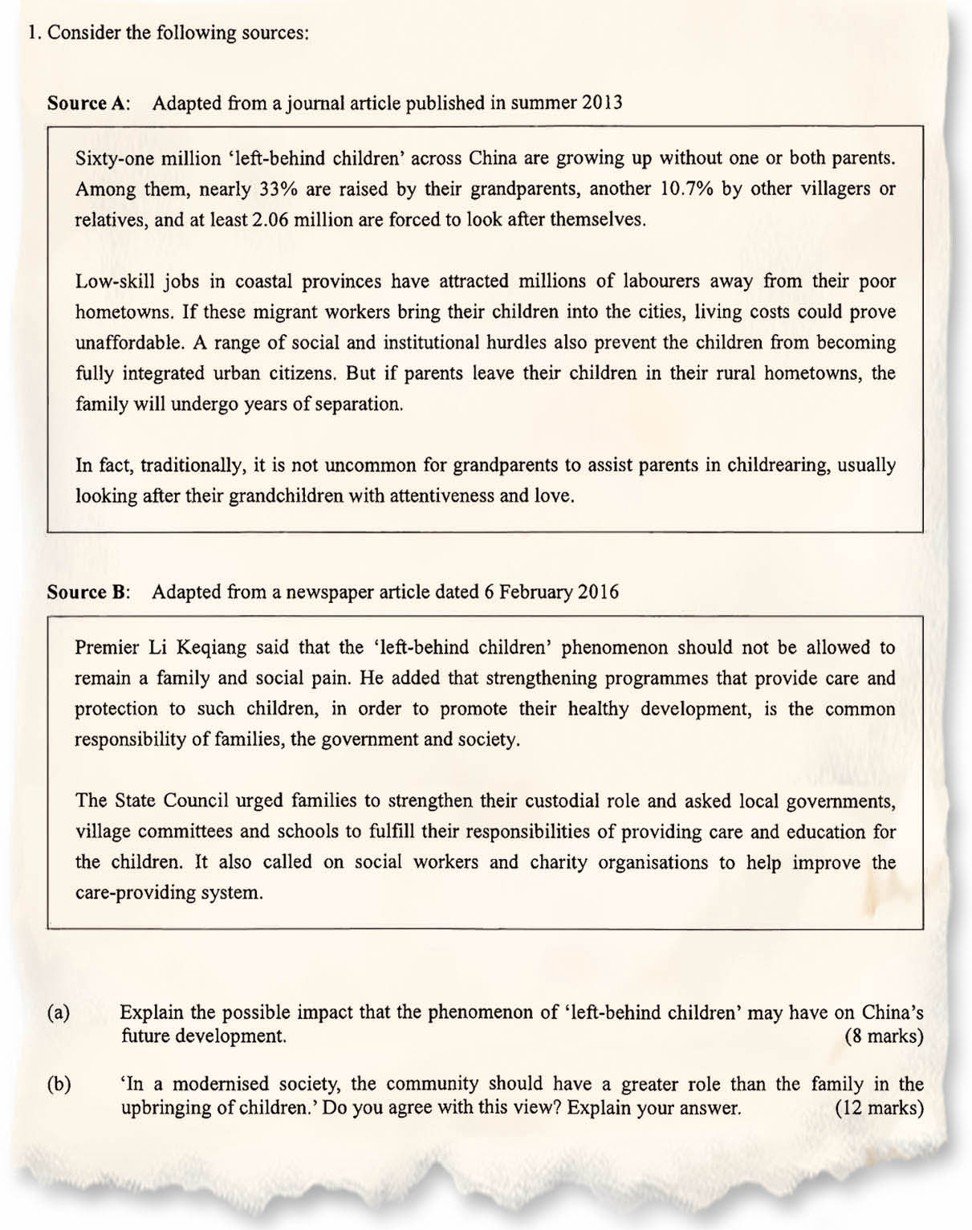
“It is not related to the Communist Party … It is related to liberal studies,” Fan suggested, adding that teachers’ biases had influenced students.
Others say there is no need for the subject to be a compulsory course of study. For example, when executive councillor Regina Ip Lau Suk-yee was seeking nomination for the chief executive post last year, she also suggested turning liberal studies into an elective, while making Chinese history a compulsory subject.
DSE liberal studies review will require balanced approach
Education sector lawmaker Ip Kin-yuen said calls to scrutinise liberal studies and consider reforming it were unlikely to have come from professional educators or the Curriculum Development Council, which advises the government.
The vice-president of the pro-democracy Professional Teachers’ Union (PTU), the city’s largest association for teachers, questioned whether there were external forces at work, such as those with a political agenda.
Keep it but with tweaks
In a co-authored journal article published last year, Stephen Chiu Wing-kai, chair professor at Education University’s department of social sciences, and Trevor Lee Tsz-lok, a lecturer at Hang Seng Management College’s department of social science, found that the curriculum and pedagogy of liberal studies had “relatively insignificant influence” in fostering youth political engagement, broadly defined.
The authors found that liberal studies “helped most of the students, politically engaged or not, enhance their politics-related knowledge, but few were motivated to turn specialised political knowledge into a strong bias for action”.
“While schoolteachers, if particularly committed politically, could be the central players to motivate students towards political activism, our findings demonstrate that any attempts by teachers to engage in political manipulation of the classroom would likely be constrained by the curriculum approach that compels students to avoid the one-sided accounts in analysing current affairs,” their article said.
Kwan admitted there could be “black sheep” among educators, and some could have indirectly influenced students with their views. In his school however, all teachers of the subject would meet to collectively prepare for lessons by setting topics for discussion, he said.
Liberal studies lesson yet to be learned
While Kwan said he had seen the benefits of liberal studies – such as students being more vocal in the classroom – he felt it was worth considering ways to improve the teaching of the subject.
Other subject teachers felt the same way, according to a PTU survey from last October to December. It found that just over half of the 401 liberal studies teachers polled supported reducing the number of modules, while about half said some of the modules could be optional.
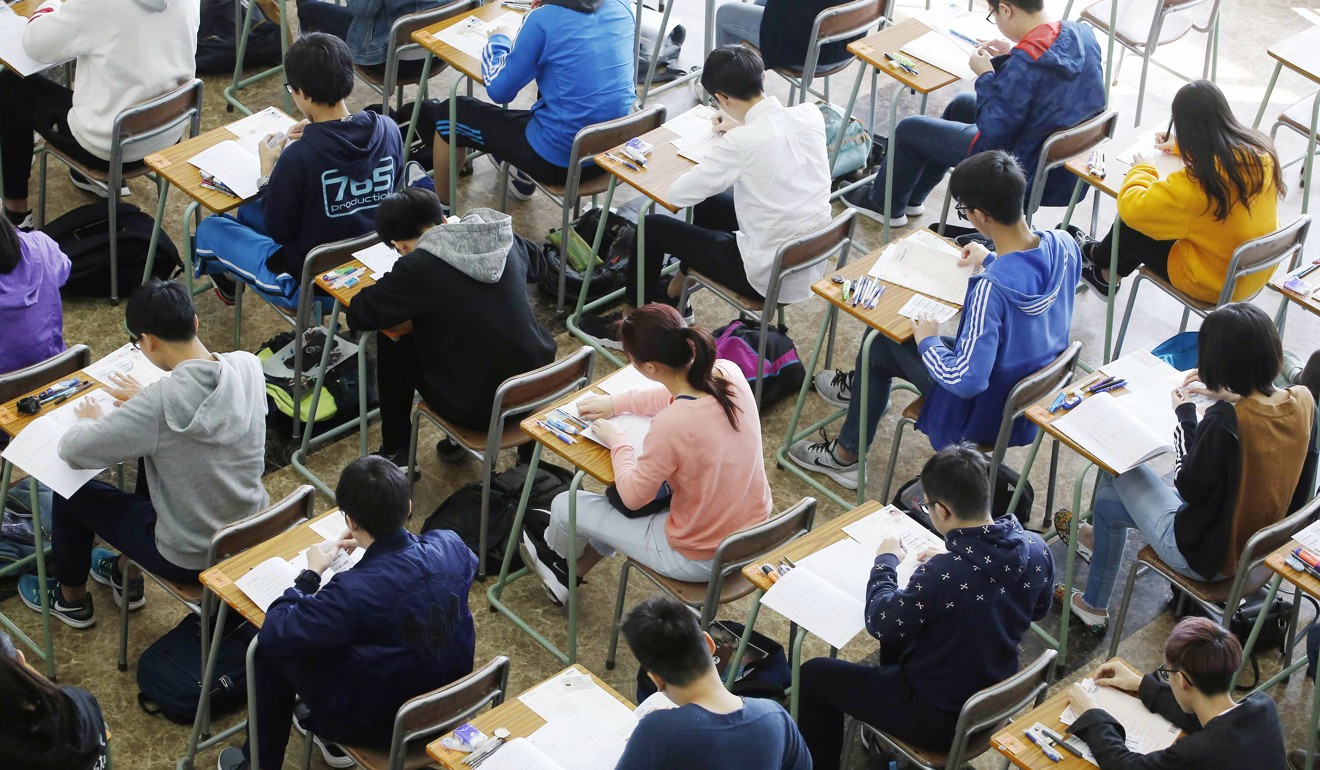
Another group that has called for tweaks to liberal studies are those who want more attention given to the sciences. Liberal studies, to them, could be made into an elective or pass-fail subject. Or, its key elements could be incorporated into language studies, a Secondary Six student who recently completed his DSE exam said.
Only wanting to give his name as Edison, he said he would have chosen to take a chemistry course in addition to the physics, and information and communication technology papers he took, if it were not for the fourth core subject of liberal studies. For mathematics, he had taken an additional paper in calculus and statistics.
Six in 10 teachers want liberal studies to remain as is
Edison asked why three of the four core subjects were more “arts-inclined”, saying liberal studies while useful, was stressful. In the DSE, candidates must get a minimum of level 3 in both Chinese and English languages, level 2 in mathematics and liberal studies, and level 2 for one other elective to enter university, on a seven-level grading scale, with 1 being the lowest grade.
Professor Tsui Lap-chee, president of The Academy of Sciences of Hong Kong, called for the requirement of four core subjects to be relaxed as this would allow students to have more choice in their subject mix. But the chairman of the government’s Task Force on Review of Research Policy and Funding would not comment on liberal studies in detail, saying: “I’m not an expert in this area of teaching.”
The way forward
Ip, the lawmaker, said the recent debate over liberal studies had sent “shock waves” rippling through the education sector. It followed a development last year where schools were told to provide at least 39 hours of study on the Basic Law, Hong Kong’s mini-constitution, at the junior secondary level. Teaching materials for the topic included what some educators deemed as biased content aimed at brainwashing youngsters.
“Any changes in curriculum should go through proper procedures, such as involving the Curriculum Development Council and the Examinations and Assessment Authority,” Ip said.
The council had reviewed liberal studies last year and affirmed the value of the subject and its current grading system.
But a look at last year and this year’s liberal studies exam papers, set by the exam board, showed a lack of questions related to politics, unlike previous years.
Why Hong Kong universities should drop their DSE obsession
Some have questioned if this is the start of efforts to water down the subject. The curriculum guide already tells teachers to “remind pupils to use a positive attitude and consider China’s development process and current situation when teaching projects that have a negative impact on national identity”.
Chan, the journalism student, recalled struggling with coursework especially the independent project, but said his schoolteachers at Ying Wa College never made discussions one-sided. Instead, students were given the “space to think”.
Kwan pointed out that youngsters were now exposed to a host of information online, including fake news. This made open discussion of diverse topics, many covered by liberal studies, all the more important. And teachers could play a part in encouraging such conversations in the classroom, he said.
“Teachers can raise their awareness of how to gather information, how to classify and filter, and how to understand different stakeholders’ meanings behind words so as not to be biased or influenced to make subjective decisions,” he said.


